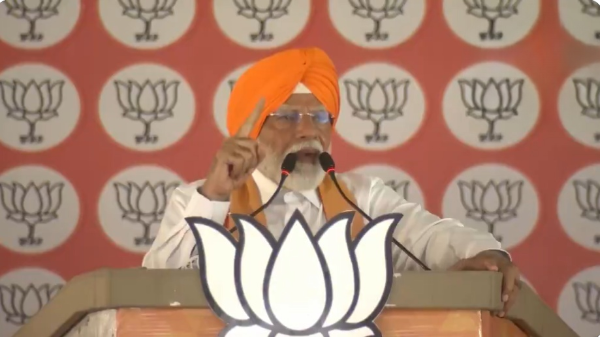Prime Minister Narendra Modi’s recent remarks regarding the Kartarpur Sahib corridor during a public rally in Patiala, Punjab, have sparked intense debate and scrutiny. Modi’s assertion that the partition orchestrated by the Congress party hindered access to Kartarpur Sahib for decades has drawn criticism from opposition leaders, historians, and civil society alike.
Addressing the rally, Modi stated, “Congress did the partition of the country in such a way that for 70 years, we had to look at Kartarpur Sahib through binoculars.” He went on to suggest that if he had been in power during the Bangladesh Liberation War, he would have taken control of Kartarpur Sahib from Pakistan.
Opposition parties have lambasted Modi’s comments, accusing him of distorting history for political expediency. They argue that partition was a complex historical event with deep-rooted causes, including colonial policies, communal tensions, and the demands for separate nationhood. Blaming the Congress party alone for the partition, they contend, oversimplifies the historical narrative and absolves other actors of responsibility.
Historians have echoed these sentiments, cautioning against the oversimplification of partition’s causes and consequences. They emphasize that attributing the barriers to Kartarpur Sahib solely to the Congress party overlooks the broader historical context and complexities surrounding the partition. Modi’s remarks, they argue, reflect a selective interpretation of history aimed at scoring political points rather than fostering a nuanced understanding of the past.
While Modi’s supporters have rallied behind him, praising his government’s efforts in inaugurating the Kartarpur Sahib corridor, they acknowledge the need for a more inclusive and accurate portrayal of history. They urge the Prime Minister to refrain from politicizing sensitive historical issues and instead focus on policies that promote unity and reconciliation.
The Kartarpur Sahib corridor, inaugurated in November 2019, was celebrated as a significant milestone in Indo-Pakistani relations and religious harmony. It provided Sikh pilgrims from India with unprecedented access to the historic gurdwara in Pakistan without requiring a visa. However, Modi’s recent comments have reignited debates on the legacy of partition and its implications for contemporary politics.
As the political fallout from Modi’s remarks continues to unfold, they serve as a reminder of the importance of critically engaging with history and avoiding the pitfalls of historical revisionism for political gain. While the Kartarpur Sahib corridor remains open for devotees, the controversy surrounding Modi’s comments underscores the challenges of reconciling divergent historical narratives and promoting inclusive nation-building efforts.



